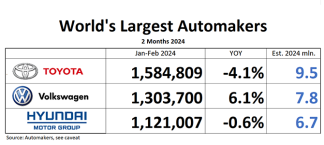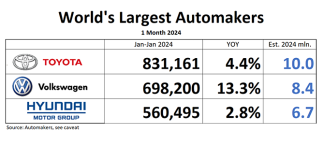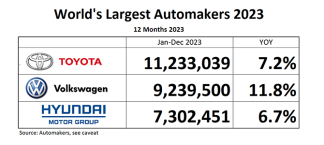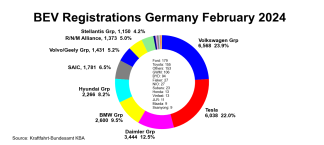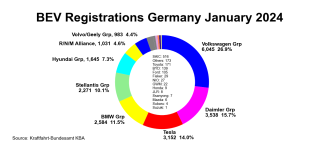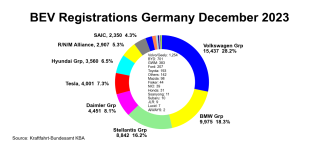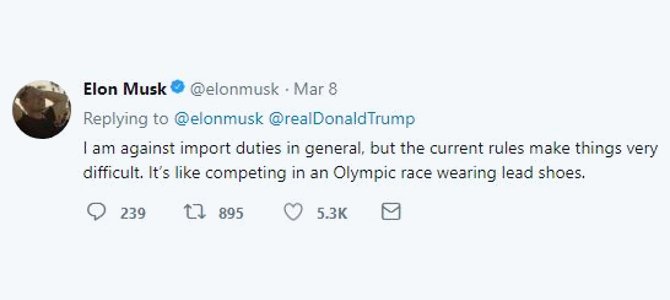
Elon Musk is truly a mixed blessing for anyone seeking to broaden the public’s understanding of the auto industry. On the one hand, he has single-handedly inspired more public interest in the business of making and selling cars than anyone in the last thirty years. On the other hand, he so often arms these newcomers with a profoundly warped perception of this important but widely-misunderstood industry.
Take the Tesla CEO’s recent tweet-storm directed at president Donald J. Trump: though well-calibrated to provoke a response from the belligerent Commander-in-Chief, Musk’s complaints are more personal grievance than big-picture analysis. In agitating against China’s long-established rules for access to the largest car market in the world, Musk is zeroed in on problems that frustrate his ambitions but that hardly trouble the industry’s largest players. And by attempting to provoke Trump to tackle China’s auto industry rules, he risks setting off a trade war that could be devastating to the entire sector.
First, some perspective is necessary: ever since China began opening up its economy, it has had rules in place to stimulate development of the auto industry it sees as a fundamental strategic asset. Imports are taxed to encourage local development, and foreign majors are required to form joint ventures with Chinese companies that authorities hope will speed the development of its indigenous automakers. More recently, as plug-in electric and hybrid cars (called “New Energy Vehicles” locally) have emerged as the Chinese strategic priority for auto industry development, new rules require foreign automakers use Chinese battery suppliers for their China-market New Energy offerings.
It’s understandable that the CEO of a famously vertical-integration-obsessed electric car company would be irritated by these rules, but most of the far larger automakers have long since made their peace with China’s rules. Despite these protective measures, foreign brands wildly outsell the local brands in China and even after splitting the resulting profits with their joint venture partners the auto industry’s major players still reap billions from their operations in the Middle Kingdom. As the largest market for cars in the world, and one that promises continued growth even as the US and Europe mature and slow, China has enormous leverage over automakers wanting access to its market.
In apparent hopes of provoking action from Trump, Musk paints these rules as deeply unfair, but he is also incredibly selective in his arguments. Pointing out that Chinese duties on imported American cars are 25% and US imports on cars are just 2.5%, Musk overlooks the fact that the US levies a 25% tax on the pickup trucks that make up most of the profits generated by the US auto market. Musk also argues that US companies can only own 50% of Chinese plants, but that “there are five 100% China-owned electric vehicle companies in the US.”
And yet, no Chinese-owned car company currently either builds or imports vehicles (electric or otherwise) in the US in anything resembling serious numbers (with the possible exception of Volvo, which was bought by the Chinese automaker Geely in 2009, and which will be opening its first US plant this year). In fact, one of the leading importers of Chinese-made cars into the US is the “100% US-owned” (and formerly US government-owned) General Motors.
In short, Musk’s argument fails to show meaningful harm to the auto sector or US economy more broadly even as he seemingly urges Trump toward a trade war that could well do precisely such harm. Bloomberg reports that the rest of the auto industry is taking the exact opposite approach as Musk, putting aside opportunities for personal benefit in order to join together to oppose Trump’s brewing trade conflict which they say could raise prices for consumers around the world. Major automakers from the US, Europe and Asia agree that Trump’s steel and aluminum tariffs alone could wreak havoc on the closely interconnected global auto industry, let alone further provocations against China’s rules.
This is not to argue that trade relations with China are free from areas of real concern. At Forbes, Michael Dunne makes a compelling case for focusing on technology, rather than steel and aluminum imports or Chinese joint venture rules, as the main risk to US-China trade relations. Meanwhile, the nearly $17 billion worth of auto parts imported into the US from China in 2017 (from which Tesla certainly takes its fair share) dwarfs the less than $1.5 billion worth of new cars imported to the US from China in the same period. But then, “fixing” that trade imbalance would make Teslas more expensive without helping Musk’s company establish a Chinese operation without submitting to Beijing’s rules.
From a free-market perspective there’s no doubt that the rules Musk bridles against seem unfair, but practically speaking Tesla is the only automaker who has chosen not to profit from the Chinese market in spite of them. If a trade war must be waged, perhaps it should be done over the issues that meaningfully affect the whole American economy and auto sector rather than those that Elon Musk finds personally inconvenient.
